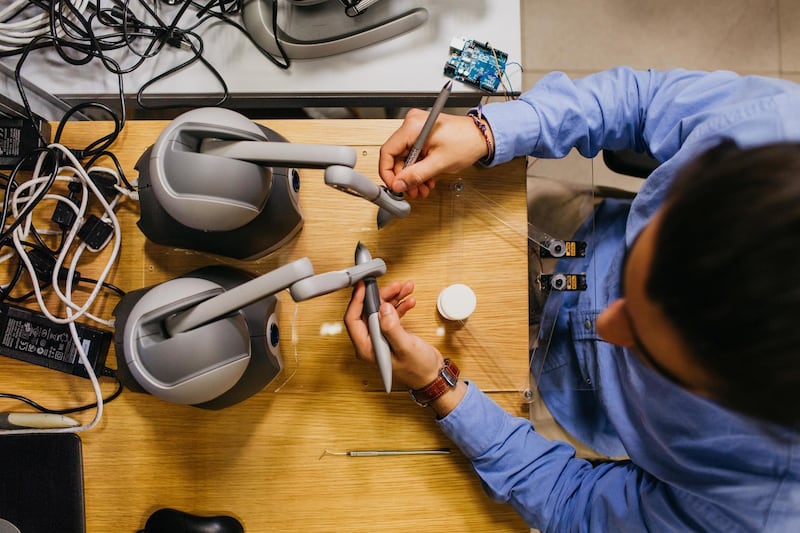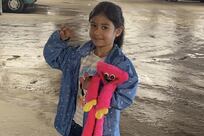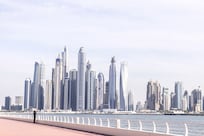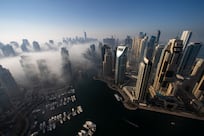Algebra, algorithm, zero, zenith, alchemy, lute, calibre, coffee. The list of words with their roots in Arabic is long, but we've only got one, or rather two, days in which to celebrate World Arabic Language Day, which this year has been given the theme of new technology by its organiser, the United Nations Educational, Scientific and Cultural Organisation (Unesco).
It’s a big topic, and one that begs the question of how well a language that prevailed in the Islamic Golden Age from the 8th to the 13th centuries – with developments and inventions pulsating from mathematics and geography to navigation and astronomy – is faring in today’s world.
“Arabic was the main language for the Arab Islamic civilisation, which made Arabic the language of both literature and science when this civilisation was ascendant,” says Muhamed Al Khalil, the head of Arabic Studies at NYU Abu Dhabi. “Most of the knowledge and science of the day was being written and studied in Arabic. Hence we find Arabic names for many discoveries, inventions, scientific observations, and technological developments of those periods. Even the name Arsenal, of the famed English football club, comes from Arabic: the manufacturing house.”
As such, Arabic was the conduit, preserver and originator of an enormous cultural and scientific legacy. The ease of expression employed by the 14th-century Arab navigator Ahmad Ibn Majid, who was born in Ras Al Khaimah, in Kitab al-Fawa'id fi usul al-bahr wa'l-qawa'id, or "The book of profitable things concerning the first principles and rules of navigation", seems startling in today's world. "Now, Arabic has a difficult relationship with science and technology," Al Khalil goes on. "This is no fault of the language itself, but of the educational and cultural negligence it is suffering. But given the proper attention and support, Arabic is as capable of communicating science and technology as any of the other major world languages."
At 10.50am today, at Al Qasimia University in Sharjah, Al Khalil will be giving a presentation on the “digital condition of the Arabic language and the computational and technological research and tools being developed by NYU Abu Dhabi to support its teaching and learning”. These include groundbreaking work by Mohamad Eid, assistant professor of electrical and computer engineering, in the field of haptic technology, which is the study of human-computer interaction through touch and how it relates to perception. Through his work at NYU, Eid has developed an interactive tool to help teach the writing of Arabic script.
In the Mena region, this could further transform a digital landscape in which, according to Google, there are now 17,000 Arabic book titles on Google Play Books, and Google Translate has launched neural translation technology for Arabic-English and English-Arabic translations. This is matched by the popularity of YouTube Batala, a platform dedicated to highlighting Arab women on YouTube, which now features more than 400 “creators”, and the one-million-strong-and-growing group of subscribers to YouTube’s Arabic content (YouTube Mosalsalat is now home to 550 Arabic television series ranging from 1950s classics to Ramadan 2017 hits and YouTube Aflam serves as an archive of the region’s film history, with more than 1,000 titles on the channel).
Nezar Andary, assistant professor of film and literature at Zayed University, co-edits a book series on Arab cinema and just finished production as director on a film on Arab filmmaker Muhammad Malas. He confirms that in terms of contemporary culture, technology has helped the language to proliferate, through an increased number of media, including the digital dissemination of films, TV gameshows and Arabic versions of apps such as Snapchat.
“In this sense, there is more Arabic than ever before,” he says. “But in terms of the education system, in both private and public schools, it’s not as emphasised. It’s dropped off since the 1970s and 80s, and as a professor, I see that the job market encourages English; there is virtually no concept of a CV in Arabic, for example.”
When it comes to his teaching, Andary says that as a humanities professor, he makes a point of including Arabic texts and other media in all his courses, whether film or the works of Homer, though again, there is not enough emphasis on Arabic literature for people whose first language is Arabic. “A lot of the great CEOs around the world have degrees in humanities, so they are critically important, but in the UAE we only have one or two BA programmes featuring Arabic literature.” Andary says that while there was an appetite for studying Arabic literature in the West, much more encouragement was needed for teaching in Arabic throughout the Middle East.
“One positive thing about the UAE is that because of its cultural diversity, there is a greater appreciation of Arabic dialects, whether Emirati, Omani, Egyptian or Moroccan,” he notes. “This is something to be celebrated.”
Muhamed Al Khalil’s talk at Al Qasimia University in Sharjah takes place from 10.50am to 11.40am.
_______________
Read more:
[ Parents blame video games, TV for declining Arabic skills ]
[ New initiative will promote Arabic among UAE’s youth ]
[ On World Arabic Language Day, preserving the lingo for future generations is key ]
_______________





